#'it's not for the complexity?' IT'S ALSO THAT BUT MAYBE MY TRAUMATIZED RAT BRAIN JUST NEEDS A BIG FAT GUY WITH AMNESIA TO HOLD ME
Explore tagged Tumblr posts
Text
When you have severe trauma related to alcoholism so you get attached to Harry
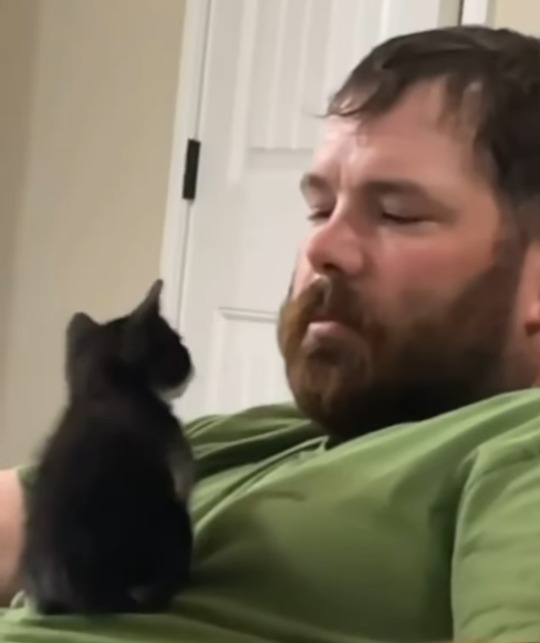
#'no listen there's hope inside of him so I'm gonna project the fixed up parental figure i needed and-'#no fr i love him so much and it's like 'lol alcoholics have poisoned my life but I want this dude'#also he's hot#'it's not for the complexity?' IT'S ALSO THAT BUT MAYBE MY TRAUMATIZED RAT BRAIN JUST NEEDS A BIG FAT GUY WITH AMNESIA TO HOLD ME#this pic is supposed to be harry as the guy but literally it can be flipped after his blackout baby girl amnesia moment#anyways I'm gonna hold his hand and try not to cry about the alcoholic trauma from my parents and family and in laws and-#free fucked up blimbo = free therapy#disco elysium#harry du bois#rosebud posting 💐
18 notes
·
View notes
Note
character bashing in sw fics is so funny to me bc it's always like... "well my blorbo may have commited war crimes BUT AT LEAST HE WASN'T A BAD JEDI DAD" (i've been reading a lot of qui-gon stuff and it is rough out there... people always complain about qui-gon leaving obi-wan on a war-torn planet with child soldiers but they never ask themselves if obi-wan had bad vibes or was unpleasant to be around). u r literally writing about star wars characters. every one of them sucks. it's part of loving star wars is to accept all your favorite characters are horrible except maybe like... grogu. grow up.
Excuse you, Grogu ate that frog lady's eggs which is clearly worse than any warcrime.
No but seriously the shit Qui-Gon gets just perplexes me. There is so much good stuff to dig into with his character and instead people just skip right over that and go straight for the bashing. He can be such a compelling character!
Even just excluding the Jude Watson books and just going of canon, there's so much.
Like, just the implications of being trained by Dooku, the kind of childhood that would have been, and thinking about the reasons Dooku had for joining the Sith. That was his father figure, that was what he grew up in the shadow of! Makes me insane to think about the kind of person that would create!
Or the reverse, the kind of person Qui-Gon would have to be to shape the Obi-Wan we know.
Like, just the things you can fill in this character with from the negative space around him.
If you want to make Qui-Gon into a bad dude you're gonna have to try harder to sell me on it lmao.
Another character that gets bashed on so much is Mace Windu and like, I'm not going to touch on the racism present in that but like. He can be an antagonist in the narrative without being written as an outright dick, you know? His character works really well as a source of conflict in a story but you gotta put the work in to make it make sense for who he is and his motivations instead of just making him shitty for shitty sake. I hate how often fandom puts Mace in stuff and makes him 'guy who is a dick to Anakin for no reason' instead of making him a complex and compelling character with honestly pretty valid reasons for his tension with Anakin. (also i hc that just being around Anakin gives Mace shatter-point induced migraines so Mace can't help but be a little snappish anytime he's near Anakin for more than 2.5 seconds. But because Anakin's brain is a traumatized rat on a wheel spinning round and round in a self destructive spiral, he takes Mace bitching at him as a sign that Mace hates his very existence when really it's like Mace looks at Anakin adn thinks: that motherfucker (affectionate))
Sorry- my sleep meds are hitting hard so I am probably writing gibberish
#mmm the screen is starting to get blurry i should probably go to bed now#going to be real fun to see if any of this makes sense when i wake up tomorrow
13 notes
·
View notes
Text
Headcanons for Wolfstar personalities...
I’ve been carefully reading a lot of stuff about Wolfstar and people being unhappy/offended by the portrayal of Sirius (especially, I think?) by other writers. And I think that it’s based on assumptions that may be incorrect.
To explain: in my case, I happen to work as a psychiatrist and obviously I see mental health everywhere, including in characters I see in books. And it interests me to look at how someone is described in canon and what their background is, and to come up with theories as to how it could have affected them from a mental health perspective, in a positive and negative way.
Your upbringing and your early life experiences as well as your genes have a massive impact on your brain development and place you at varying risk for developing mental illness and/or personality disorders. This does not mean you are a weak person, far from it, it just affects how you view relationships, your ability to trust others, your ability to self-soothe, to calm your emotions, your fear of abandonment etc. mental health problems affect both men and women, just to note here. Members of the 🏳️🌈 community have higher rates of mental illnesses as teenagers, not surprisingly, due to the higher stress/shit they have to put up with.
Anyway....
So for me, based on canon evidence that Sirius ‘ mother used to scream at him, that he hates his family, that he ran away from home, that he made impulsive decisions and used to get into regular fights/hex Slytherin wannabe death eaters etc, I headcanon him as having borderline personality disorder. It just makes sense to me. And yes this means he experiences very intense emotions that can be overwhelming, he can lose his temper quite badly, he has fears of abandonment and finds it very hard to trust people and can become paranoid/quasi psychotic when very stressed (I’m sorry but if that doesn’t sound like canon Sirius???) - but in no sense whatsoever is that me implying he is in some way “feminine” or the female in the relationship. That’s like implying that only women have traumatic early life experiences???? It’s just me making sense of his background and what little canon info we have, and then imagining how it would have affected him. James is his secure base, that someone he has learnt to completely trust. The Potters seem to be the same for him. He’s way less secure when it comes to romantic relationships so that includes Remus. In my mind he gets depressed after being forced back into grimmauld place, unable to contribute and DO SOMETHING and reminded of the emotional abuse (and probably physical abuse and emotional neglect) he experienced there. He probably has PTSD as well. I mean who wouldn’t after being stuck in Azkaban for 12 years?????
In Grimmauld Place, he gets depressed, and he changes from the very helpful, supportive godfather to Harry earlier in the HP books to then making rash decisions and Hermione is worried about him in canon.
btw Boderline Personality Disorder occurs in males and females, although it is easier to get misdiagnosed as a male because often when you present with drug or alcohol abuse eg professionals don’t recognise the underlying problem which made you turn to substance abuse in the first place.
Okay, so in no sense whatsoever is my headcanon of Sirius as “dramatic” (if you want to call it that), based on misogyny or me thinking he’s the female in the relationship or whatever. It’s simply based on the info from the books, and how I imagine it affecting him. I hope that makes sense. It would be EXACTLY THE SAME if I was writing about a female character who had had the same life experiences.... it’s not based on gender. Sirius being into flying motorbikes, wearing ridiculous coloured t shirts with a Phoenix on it, sticking up multiple muggle women posters in his room - the guy does drama rather well in canon. And I don’t see any of this drama as at all “feminine” ... it’s just him. He’s also described as very good looking in canon. Again that’s not trying to make him feminine it’s just a fact. You can be very attractive and very male, lol!
Then Remus. So we know he suffered a huge trauma aged about 5 which changed his life forever. He thinks he’s too old, too poor, too ‘wrong’ to get married, he’s surprised he makes any friends and that they accept him as he is. In canon, He has low self esteem and won’t stand up to James and Sirius when they “bully” Snape after the exam. Anyway, I headcanon that he has PTSD, probably complex PTSD because each month is traumatic for him. And then after 31st October 1981 he experienced complete loss of all his friends and what he now believes is betrayal by his lover. I guess he probably became depressed for a time and may have drunk excessively to cope. With PTSD, people often feel closed off emotionally and that’s how I see Remus. Don’t get me wrong, I see both Remus and Sirius as being incredibly resilient despite their respective traumas. They are incredibly loyal, to their friends, to Harry, to Harry’s friends, they both risked their lives regularly with the Order to save others, they both die trying to save Harry and the next generation. They are heroes. Remus is a very kind and thoughtful person who the students love. Sirius is willing to live off rats in a cave to help Harry. They are both incredibly likable, strong characters. That’s how I write them and I really don’t see how that is in any way misogynistic at all. I think when you get where the characterization is coming from, then maybe this idea / assumption is not so valid? I mean you can still believe that, but it’s just not accurate.
In relation to who is top/bottom or don/sub etc, I don’t really care. I am quite happy to read either/all the above. Personally I think maybe they switch depending on time of the month?? I don’t think being a bottom equates being less male/masculine at all. I don’t see why it should. In canon Remus seems to be the only person Sirius immediately listens to (“sit down!”) so that may sound a bit dom I suppose. The greater tendency towards dom Remus is most likely also a reaction to earlier fandom ideas where Remus was very wet blankety/passive unpopular guy who has never dated anyone and Sirius was the suave/popular guy who had loads of conquests under his belt!! And to each their own, I personally don’t really fancy that version of Wolfstar.
But I have read fics with Dom Sirius and others with Dom Remus, fics with Blackinnon (even if I’m not usually a fan, I have been won over by brilliant writing @stonecoldhedwig 😍😍😍!), fics with Jegulus (even though Jily is absolutely my favourite but @wolfstargarden your writing is too good 😂!!!) fics with Remus being buff (💕💕💕@confunded-gryffindor !!) and fics with Sirius being a mechanic and others where he’s an artist( @jencala !!! ❤️❤️) or where Sirius is an Indiana Jones type character (@hp-shessocold😍😍!) you can be any of these things and can be either female or a male character. You can be a drag queen or a tattoo artist and be very Sirius (@jennandblitz 😉!) . I’ve read Sirius dying of cancer (ugh!! 💔) fics and Remus having a chronic illness quite a few times. As long as it’s well written and I love the characters , I don’t care. As you know, I read a LOT of fics and I generally let people know what I think about their fics (by gushing about the writing!) so you know I’m not making this up, lol!
There is some research suggesting that people with BPD traits often end up in relationships with people who are quite opposite e.g. don’t express strong emotions/are emotionally repressed/distant etc. maybe they compliment each other. So in my universe Wolfstar do compliment each other. I’m currently refusing to consider canon endings ☹️☹️☹️!
Anyway, that’s enough. I feel good for explaining what I think. You can agree or disagree. I happen to think that many people write characters based on their own life experiences and that this affects the portrayal.
I went a bit overboard with this!! I need a cup of tea or some sleep!! Up early tomorrow!
The Wolfstar fandom is full of incredibly talented people and I hope you can all put these disagreements behind you and move on. Good night❤️
#ideas#wolfstar#representations#why#why sirius#why remus#mental health#characters#i also headcanon james as having a bit of ADHD#cause doodling#fidgety rtc#and speaking without thinking! 😂
79 notes
·
View notes
Text
Needed Interactions

People I want to see Wanda interact with more than her battery operated boyfriend:
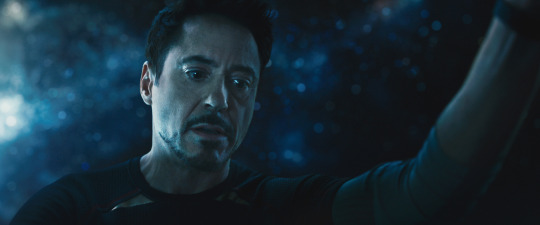
The Avenger she was obsessed with and joined Hydra to kill, the guy whose hero backstory is specifically what happened to families such as hers?
In “Civil War” their main beef with each other was over him “locking her in her room.” All the serious shit, they somehow buried the hatched about between movies... and we never saw it.
Did she ever feel bad about triggering his PTSD to cause all that destruction, and try using her powers to help fix his mental problems after switching sides? (And maybe make another boo-boo, this time by accident?) Did Tony ever use his money and influence to help her, to try and make up for the mis-sold weapons? Do they ever relate their guilt complexes to each other or talk about PTSD? Is Tony pissed for what she did to Bruce? Did Tony give her the money to buy that new red Goth outfit? Did they two of them ever get mistaken for a sugar daddy and his young Russian mail-bride and be comically grossed out? These are things I need to know!

The Avengers’ first former villainess who was brainwashed from childhood to work for an evil organization and is from a former Soviet country
There’s a fan theory that Nat helped Wanda gradually erase her accent over the course of the movies. Did Nat also help Wanda with the guilt and all that? Or teach Wanda how to live/blend in normal society? Is the fact that they were both “saved” so to speak by Hawkeye anything worth bringing up, MCU? Like, are they both super protective of Hawkeye, or is Wanda semi-jealous of Nat due to teen/unsocialized-young-adult hormones?
Basically, Nat should be Wanda’s big sister in the whole redemption arc thing. And everything else.

The other Hydra lab-rat who committed atrocities for them... but didn’t volunteer.... and was specifically a victim of mind control... and whose main condition that needs (needed) fixing was mind-related?
Look, I worship Shuri, but having her fix Buck’s brain and provide the new arm was such a cop-out. Tony should’ve made the new arm, for obvious reasons, and Wanda should’ve cured Bucky’s Hydra programing, or at least helped with it. (Maybe a combination of her mind-powers and Tony’s BARF tech) That is of course, after having to earn his trust. Bucky, if/when he learned her history, would likely despise her for a while, since she “volunteered” for the Hydra labs, and specialized in mind-control. In fact, did Bucky and Wanda perhaps already meet, back at Hydra? Was Wanda, or previous agents given similar powers, used in Bucky’s Winer Soldier programing?
Speaking of mind-control victims who might despise Wanda...
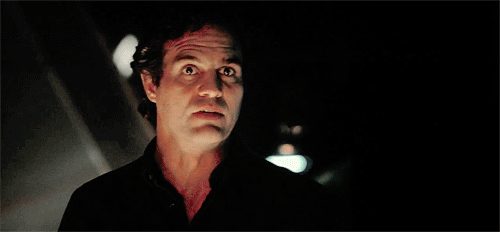
The other guy whose severe mental problems she deliberately triggered, with the intention of harming civilian life
Damn this would be heated. (Not in that way. Ewe. Age diff, yuck. I’m talking platonic relationships here.) Bruce should hate her trillions of times worse than Tony or Bucky would combined... but Bruce is such a cinnamon roll, you can bet he’d be one of the first to forgive her--or at least pretend to, even if he was still feeling daily rage and struggling to keep the Other Guy quiet whenever she’s in the room.
Frankly, Bruce should have the role that Hawkeye does in Wanda’s life. He shouldv’e been the one to give her that pep talk, make her switch sides, and become her big brother. Even if he still privately--or openly--hated her while doing so.

The other traumatized orphan girl who saw her parents die in an explosion, and joined “Shield” but (probably) really Hydra, killed for them, and seek “revenge” on a snarky scientist for a flimsy connection to her situation?
As Nat should be Wanda’s big sister in this area, Wanda should be Ava’s. The fact that both are perfect matches for Bucky just adds fuel to the fire.
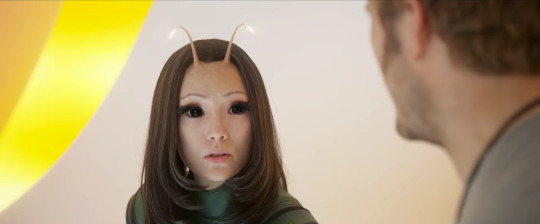
The toned-down, more innocent version of Wanda
The one who was born with her mental powers, who was a timid pawn to the villain she served rather than an eager volunteer, and who hasn’t a negative bone in her body. If Mantis and Wanda were to “read” each other, what would that do to each of them?
Would Wanda’s self esteem go to the gutter, at seeing someone with such a similar background who turned out so much more pure? Would she be scared for how naiive Mantis is? Would Mantis then stun her by having some wisdom Wanda never expected her to, and then remind Wanda she’s actually centuries older than her? (I have no idea how old Mantis is, but given how old Ego was, it’s possible.) Could Mantis help Wanda control her powers?
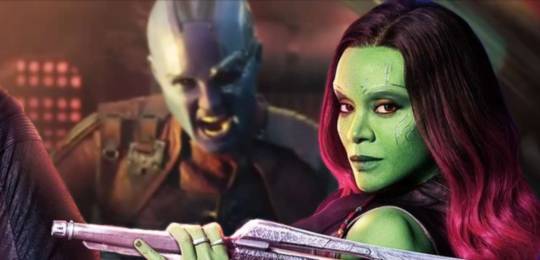
Two more! Wow.
Let’s just start a club for ladies who were indoctrinated to work for villains growing up and are now pissed about it.
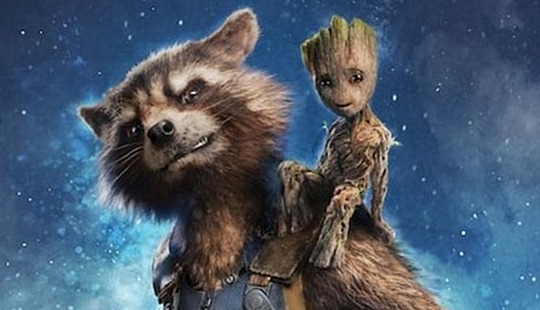
“I’ve never read the mind of a tree before. Or an opossum.”
Every single Avenger plus Dr. Strange has to meet these two, if only for one brief exchange. You can’t toss a talking raccoon and tree into the MCU and not show us what everyone’s reactions to them would be.
Could Wanda’s magic dig up Groot’s memories of his past life, from the first movie? Can her energy-balls make Groot grow or sprout leaves or whatnot? Rocket obviously would hate her, because he hates anyone who probes under his angry “armor” so to speak. And she’d certainly make some remark about how she and Pietro used to eat trash-pandas like him for dinner when times were slightly tougher than usual in Sokovia, with all the starvation and whatnot.
Also, didn’t Wanda’s brother have a problem with impulsive stealing, much like Rocket?
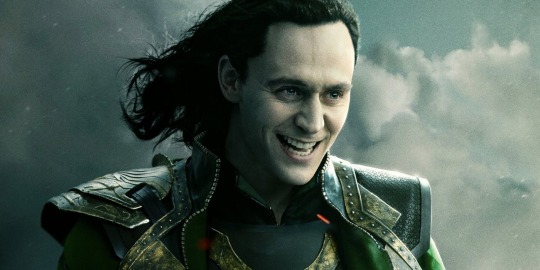
Another sorcerer villain-turned-good(?), who originally went bad because he was an orphan with a sob story, and whose magic specifically specializes in manipulation
“The universe wronged us! The Avengers wronged us. And each of us alone is more powerful than most of them combined. Together, our magic would be unstoppable. Rule by my side, as my queen. Just Just fear me, love me, do as I say, and I will be your slave!”
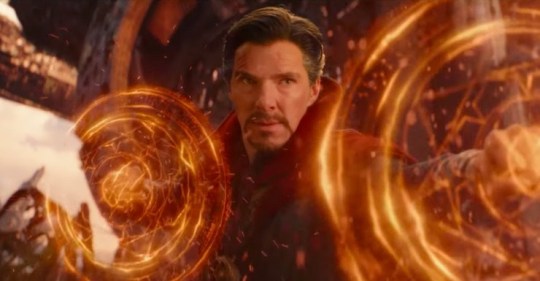
Duh.
So, you’re on the run from most every world government, because your magic was out of control, and maybe you’re sick of the Avengers defining your life in some way or another. If only there was some secret getaway that would teach you how to control your magic and more, with a guy who disdained the Avengers and wouldn’t mind at all stealing one of their young upstarts?
When Wanda learns magic from Dr. Strange, she has glowing discs like he does, but hers are red.
Loki may also be learning alongside her (possibly against his will, as a rehabilitation order by King Thor). Wanda would obviously be the star student and Loki would be the little bitch.
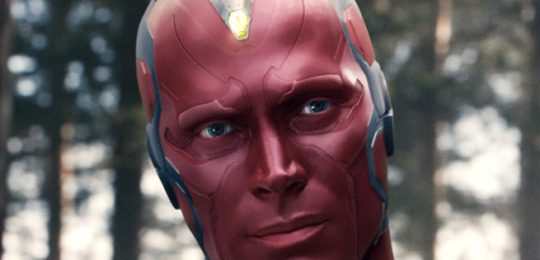
The Mind Stone
If you’re gonna make this her main relationship, at least give us some more about what it’s like for a telepath to be in love with the Mind Stone... and the fact that the guy she loves only exists because of her crimes. Frell, this could actually be an interesting ship. Why isn’t it?
#wanda maximoff#scarlet witch#wanda maximpad#wanda#bucky#winterwitch#scarletwinter#tony stark#bruce banner#hulk#johnasberg#johannesburg#ultron#mantis#telepath#gamora#nebula#nat#natasha#natasha romanoff#black widow#female#superhero#marvel#mcu#avengers#guardians of the galaxy#dr strange#loki#labyrinth
53 notes
·
View notes
Text
Where does the controversial finding that adult human brains don't grow new neurons leave ongoing research?
by Janice R. Naegele

Could it be that a baby has all the brain cells she ever will? Jv Garcia on Unsplash, CC BY
Scientists have known for about two decades that some neurons – the fundamental cells in the brain that transmit signals – are generated throughout life. But now a controversial new study from the University of California, San Francisco, casts doubt on whether many neurons are added to the human brain after birth.
As a translational neuroscientist, this work immediately piqued my interest. It has direct implications for the research my lab does: We transplant young neurons into damaged brain areas in mice in an attempt to treat epileptic seizures and the damage they’ve caused. Like many labs, part of our work is based on a foundational belief that the hippocampus is a brain region where new neurons are born throughout life.
If the new study is right, and human brains for the most part don’t add new neurons after infancy, researchers like me need to reconsider the validity of the animal models we use to understand various brain conditions – in my case temporal lobe epilepsy. And I suspect other labs that focus on conditions including drug addiction, depression and post-traumatic stress disorder are thinking about what the UCSF study means for their investigations, too.

In the brain of a baby who died soon after birth, there are many new neurons (green in this image) in the hippocampus. Sorrells et al, CC BY-ND
When and where are new neurons born?
No doubt, the adult human brain is able to learn throughout life and to change and adapt – a capability brain scientists call neuroplasticity, the brain’s ability to reorganize itself by rewiring connections. Yet, a central dogma in the field of neuroscience for nearly 100 years had been that a child is born with all the neurons she will ever have because the adult brain cannot regenerate neurons.
Just over half a century ago, researchers devised a way to study proliferation of cells in the mature brain, based on techniques to incorporate a radioactive label into new cells as they divide. This approach led to the startling discovery in the 1960s that rodent brains actually could generate new neurons.
Neurogenesis – the production of new neurons – was previously thought to only occur during embryonic life, a time of extremely rapid brain growth and expansion, and the rodent findings were met with considerable skepticism. Then researchers discovered that new neurons are also born throughout life in the songbird brain, a species scientists use as a model for studying vocal learning. It started to look like neurogenesis plays a key role in learning and neuroplasticity – at least in some brain regions in a few animal species.
Even so, neuroscientists were skeptical that many nerve cells could be renewed in the adult brain; evidence was scant that dividing cells in mammalian brains produced new neurons, as opposed to other cell types. It wasn’t until researchers extracted neural stem cells from adult mouse brains and grew them in cell culture that scientists showed these precursor cells could divide and differentiate into new neurons. Now it is generally well accepted that neurogenesis takes place in two areas of the adult rodent brain: the olfactory bulbs, which process smell information, and the hippocampus, a region characterized by neuroplasticity that is required for forming new declarative memories.
Adult neural stem cells cluster together in what scientists call niches – hotbeds for cultivating the birth and growth of new neurons, recognizable by their distinctive architecture. Despite the mounting evidence for regional growth of new neurons, these studies underscored the point that the adult brain harbors only a few stem cell niches and their capacity to produce neurons is limited to just a few types of cells.
With this knowledge, and new tools for labeling proliferating cells and identifying maturing neurons, scientists began to look for postnatal neurogenesis in primate and human brains.

A mouse neural stem cell (blue and green) grows in a lab dish. Can human brain cells do what rodent brain cells do? Mark McClendon, Zaida Alvarez Pinto, Samuel I. Stupp, Northwestern University, Evanston, IL, CC BY-NC
What’s happening in adult human brains?
Many neuroscientists believe that by understanding the process of adult neurogenesis we’ll gain insights into the causes of some human neurological disorders. Then the next logical step would be trying to develop new treatments harnessing neurogenesis for conditions such as Alzheimer’s disease or trauma-induced epilepsy. And stimulating resident stem cells in the brain to generate new neurons is an exciting prospect for treating neurodegenerative diseases.
Because neurogenesis and learning in rodents increases with voluntary exercise and decreases with age and early life stress, some workers in the field became convinced that older people might be able to enhance their memory as they age by maintaining a program of regular aerobic exercise.
However, obtaining rigorous proof for adult neurogenesis in the human and primate brain has been technically challenging – both due to the limited experimental approaches and the larger sizes of the brains, compared to reptiles, songbirds and rodents.
Researchers injected a compound found in DNA, nicknamed BrdU to identify brand new neurons in human adult hippocampus – but the labeled cells were extremely rare. Other groups demonstrated that adult human brain tissue obtained during neurosurgery contained stem cell niches that housed progenitor cells that could generate new neurons in the lab, showing that these cells had an inborn neurogenic capacity, even in adults.
But even when scientists saw evidence for new neurons in the brain, they tended to be scarce. Some neurogenesis experts were skeptical that evidence based on incorporating BrdU into DNA was a reliable method for proving that new cells were actually being born through cell division, rather than just serving as a marker for other normal cell functions.
Further questions about how long human brains retain the capacity for neurogenesis arose in 2011, with a study that compared numbers of newborn neurons migrating in the olfactory bulbs of infants versus older individuals up to 84 years of age. Strikingly, in the first six months of life, the baby brains contained lots of chains of young neurons migrating into the frontal lobes, regions that guide executive function, long-range planning and social interactions. These areas of the human cortex are hugely increased in size and complexity compared to rodents and other species. But between 6 to 18 months of age, the migrating chains dwindled to a thin stream. Then, a very different pattern emerged: Where the migrating chains of neurons had been in the infant brain, a cell-free gap appeared, suggesting that neural stem cells become depleted during the first six months of life.
Questions still lingered about the human hippocampus and adult neurogenesis as a source for its neuroplasticity. One group came up with a clever approach based on radiocarbon dating. They measured how much atmospheric ¹⁴C – a radioactive isotope derived from nuclear bomb tests – was incorporated into people’s DNA. This method suggested that as many as 700 new cells are added to the adult human hippocampus every day. But these findings were contradicted by a 2016 study that found that the neurogenic cells in the adult hippocampus could only produce non-neuronal brain cells called microglia.
Rethinking neurogenesis research
Now the largest and most comprehensive study conducted to date presents even stronger evidence that robust neurogenesis doesn’t continue throughout adulthood in the human hippocampus – or if it does persist, it is extremely rare. This work is controversial and not universally accepted. Critics have been quick to cast doubt on the results, but the finding isn’t totally out of the blue.
So where does this leave the field of neuroscience? If the UCSF scientists are correct, what does that mean for ongoing research in labs around the world?

It’s much easier to work with rodent brains than human ones. This is a stained image of the hippocampus and neurons of a mouse with neurodegenerative disease. NICHD/I. Williams, CC BY
Because lots of studies of neurological diseases are done in mice and rats, many scientists are invested in the possibility that adult neurogenesis persists in the human brain, just as it does in rodents. If it doesn’t, how valid is it to think that the mechanisms of learning and neuroplasticity in our model animals are comparable to those in the human brain? How relevant are our models of neurological disorders for understanding how changes in the hippocampus contribute to disorders such as the type of epilepsy I study?
In my lab, we transplant embryonic mouse or human neurons into the adult hippocampus in mice, after damage caused by epileptic seizures. We aim to repair this damage and suppress seizures by seeding the mouse hippocampus with neural stem cells that will mature and form new connections. In temporal lobe epilepsy, studies in adult rodents suggest that naturally occurring hippocampal neurogenesis is problematic. It seems that the newborn hippocampal neurons become highly excitable and contribute to seizures. We’re trying to inhibit these newborn hyperexcitable neurons with the transplants. But if humans don’t generate new hippocampal neurons, then maybe we’re developing a treatment in mice for a problem that has a different mechanism in people.
Perhaps our species has evolved separate mechanisms for neuroplasticity, distinct from those used by species such as rats and mice. One possibility is that there are other sites in the human brain where neurogenesis occurs - its a big structure and more exploration will be necessary. If it turns out to be true that the human brain has a diminished capacity for neurogenesis after birth, the finding will have important implications for how neuroscientists like me think about tackling brain disorders.

Perhaps most importantly, this work underscores how crucial it is to learn how to increase the longevity of the neurons we do have, born early in life, and how we might replace or repair neurons that become damaged.
Janice R. Naegele is an Alan M Dachs Professor of Science and Professor of Biology, Neuroscience and Behavior at Wesleyan University
This article was originally published on The Conversation.
#science#neuroscience#memory#learning#stem cells#brain#the human brain#epilepsy#neurogenesis#neuroplasticity#neurons#brain disorder#brain cells#neuron
9 notes
·
View notes
Text
Where does the controversial finding that adult human brains don't grow new neurons leave ongoing research?
http://bit.ly/2IrPwoA
Could it be that a baby has all the brain cells she ever will? Jv Garcia on Unsplash, CC BY
Scientists have known for about two decades that some neurons – the fundamental cells in the brain that transmit signals – are generated throughout life. But now a controversial new study from the University of California, San Francisco, casts doubt on whether many neurons are added to the human brain after birth.
As a translational neuroscientist, this work immediately piqued my interest. It has direct implications for the research my lab does: We transplant young neurons into damaged brain areas in mice in an attempt to treat epileptic seizures and the damage they’ve caused. Like many labs, part of our work is based on a foundational belief that the hippocampus is a brain region where new neurons are born throughout life.
If the new study is right, and human brains for the most part don’t add new neurons after infancy, researchers like me need to reconsider the validity of the animal models we use to understand various brain conditions – in my case temporal lobe epilepsy. And I suspect other labs that focus on conditions including drug addiction, depression and post-traumatic stress disorder are thinking about what the UCSF study means for their investigations, too.
In the brain of a baby who died soon after birth, there are many new neurons (green in this image) in the hippocampus. Sorrells et al, CC BY-ND
When and where are new neurons born?
No doubt, the adult human brain is able to learn throughout life and to change and adapt – a capability brain scientists call neuroplasticity, the brain’s ability to reorganize itself by rewiring connections. Yet, a central dogma in the field of neuroscience for nearly 100 years had been that a child is born with all the neurons she will ever have because the adult brain cannot regenerate neurons.
Just over half a century ago, researchers devised a way to study proliferation of cells in the mature brain, based on techniques to incorporate a radioactive label into new cells as they divide. This approach led to the startling discovery in the 1960s that rodent brains actually could generate new neurons.
Neurogenesis – the production of new neurons – was previously thought to only occur during embryonic life, a time of extremely rapid brain growth and expansion, and the rodent findings were met with considerable skepticism. Then researchers discovered that new neurons are also born throughout life in the songbird brain, a species scientists use as a model for studying vocal learning. It started to look like neurogenesis plays a key role in learning and neuroplasticity – at least in some brain regions in a few animal species.
Even so, neuroscientists were skeptical that many nerve cells could be renewed in the adult brain; evidence was scant that dividing cells in mammalian brains produced new neurons, as opposed to other cell types. It wasn’t until researchers extracted neural stem cells from adult mouse brains and grew them in cell culture that scientists showed these precursor cells could divide and differentiate into new neurons. Now it is generally well accepted that neurogenesis takes place in two areas of the adult rodent brain: the olfactory bulbs, which process smell information, and the hippocampus, a region characterized by neuroplasticity that is required for forming new declarative memories.
Adult neural stem cells cluster together in what scientists call niches – hotbeds for cultivating the birth and growth of new neurons, recognizable by their distinctive architecture. Despite the mounting evidence for regional growth of new neurons, these studies underscored the point that the adult brain harbors only a few stem cell niches and their capacity to produce neurons is limited to just a few types of cells.
With this knowledge, and new tools for labeling proliferating cells and identifying maturing neurons, scientists began to look for postnatal neurogenesis in primate and human brains.
A mouse neural stem cell (blue and green) grows in a lab dish. Can human brain cells do what rodent brain cells do? Mark McClendon, Zaida Alvarez Pinto, Samuel I. Stupp, Northwestern University, Evanston, IL, CC BY-NC
What’s happening in adult human brains?
Many neuroscientists believe that by understanding the process of adult neurogenesis we’ll gain insights into the causes of some human neurological disorders. Then the next logical step would be trying to develop new treatments harnessing neurogenesis for conditions such as Alzheimer’s disease or trauma-induced epilepsy. And stimulating resident stem cells in the brain to generate new neurons is an exciting prospect for treating neurodegenerative diseases.
Because neurogenesis and learning in rodents increases with voluntary exercise and decreases with age and early life stress, some workers in the field became convinced that older people might be able to enhance their memory as they age by maintaining a program of regular aerobic exercise.
However, obtaining rigorous proof for adult neurogenesis in the human and primate brain has been technically challenging – both due to the limited experimental approaches and the larger sizes of the brains, compared to reptiles, songbirds and rodents.
Researchers injected a compound found in DNA, nicknamed BrdU to identify brand new neurons in human adult hippocampus – but the labeled cells were extremely rare. Other groups demonstrated that adult human brain tissue obtained during neurosurgery contained stem cell niches that housed progenitor cells that could generate new neurons in the lab, showing that these cells had an inborn neurogenic capacity, even in adults.
But even when scientists saw evidence for new neurons in the brain, they tended to be scarce. Some neurogenesis experts were skeptical that evidence based on incorporating BrdU into DNA was a reliable method for proving that new cells were actually being born through cell division, rather than just serving as a marker for other normal cell functions.
Further questions about how long human brains retain the capacity for neurogenesis arose in 2011, with a study that compared numbers of newborn neurons migrating in the olfactory bulbs of infants versus older individuals up to 84 years of age. Strikingly, in the first six months of life, the baby brains contained lots of chains of young neurons migrating into the frontal lobes, regions that guide executive function, long-range planning and social interactions. These areas of the human cortex are hugely increased in size and complexity compared to rodents and other species. But between 6 to 18 months of age, the migrating chains dwindled to a thin stream. Then, a very different pattern emerged: Where the migrating chains of neurons had been in the infant brain, a cell-free gap appeared, suggesting that neural stem cells become depleted during the first six months of life.
Questions still lingered about the human hippocampus and adult neurogenesis as a source for its neuroplasticity. One group came up with a clever approach based on radiocarbon dating. They measured how much atmospheric ¹⁴C – a radioactive isotope derived from nuclear bomb tests – was incorporated into people’s DNA. This method suggested that as many as 700 new cells are added to the adult human hippocampus every day. But these findings were contradicted by a 2016 study that found that the neurogenic cells in the adult hippocampus could only produce non-neuronal brain cells called microglia.
Rethinking neurogenesis research
Now the largest and most comprehensive study conducted to date presents even stronger evidence that robust neurogenesis doesn’t continue throughout adulthood in the human hippocampus – or if it does persist, it is extremely rare. This work is controversial and not universally accepted. Critics have been quick to cast doubt on the results, but the finding isn’t totally out of the blue.
So where does this leave the field of neuroscience? If the UCSF scientists are correct, what does that mean for ongoing research in labs around the world?
It’s much easier to work with rodent brains than human ones. This is a stained image of the hippocampus and neurons of a mouse with neurodegenerative disease. NICHD/I. Williams, CC BY
Because lots of studies of neurological diseases are done in mice and rats, many scientists are invested in the possibility that adult neurogenesis persists in the human brain, just as it does in rodents. If it doesn’t, how valid is it to think that the mechanisms of learning and neuroplasticity in our model animals are comparable to those in the human brain? How relevant are our models of neurological disorders for understanding how changes in the hippocampus contribute to disorders such as the type of epilepsy I study?
In my lab, we transplant embryonic mouse or human neurons into the adult hippocampus in mice, after damage caused by epileptic seizures. We aim to repair this damage and suppress seizures by seeding the mouse hippocampus with neural stem cells that will mature and form new connections. In temporal lobe epilepsy, studies in adult rodents suggest that naturally occurring hippocampal neurogenesis is problematic. It seems that the newborn hippocampal neurons become highly excitable and contribute to seizures. We’re trying to inhibit these newborn hyperexcitable neurons with the transplants. But if humans don’t generate new hippocampal neurons, then maybe we’re developing a treatment in mice for a problem that has a different mechanism in people.
Perhaps our species has evolved separate mechanisms for neuroplasticity, distinct from those used by species such as rats and mice. One possibility is that there are other sites in the human brain where neurogenesis occurs - its a big structure and more exploration will be necessary. If it turns out to be true that the human brain has a diminished capacity for neurogenesis after birth, the finding will have important implications for how neuroscientists like me think about tackling brain disorders.
Perhaps most importantly, this work underscores how crucial it is to learn how to increase the longevity of the neurons we do have, born early in life, and how we might replace or repair neurons that become damaged.
Janice R. Naegele receives funding from the National Institutes of Health, Connecticut Regenerative Medicine Fund and CURE Epilepsy.
0 notes